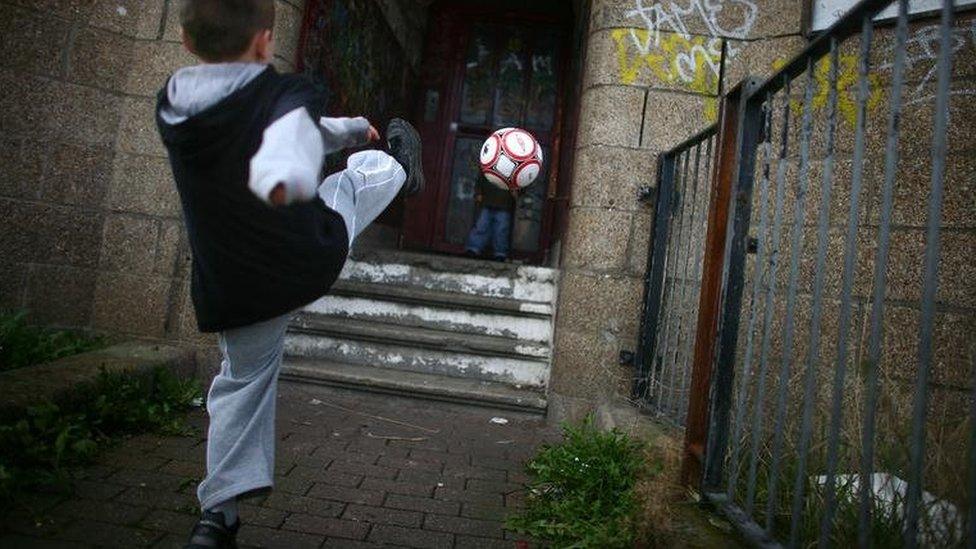Dying young in Stockton - England’s most unequal town
- Published
'Seeing my kids cry, that's horrible'
The life expectancy gap between rich and poor people in England has been widening for nearly two decades.
The rich stay healthy longer. The poor die younger.
That bleak assessment is based on national data.
Stockton-on-Tees is the town with England's biggest gap in life expectancy, according to Public Health England,, external and resident Rob Hill, who is only 46, is getting ready for his death.
A lifetime of cigarettes and poor food have taken their toll and Rob has numerous health problems including emphysema, lymphedema and type 2 diabetes.
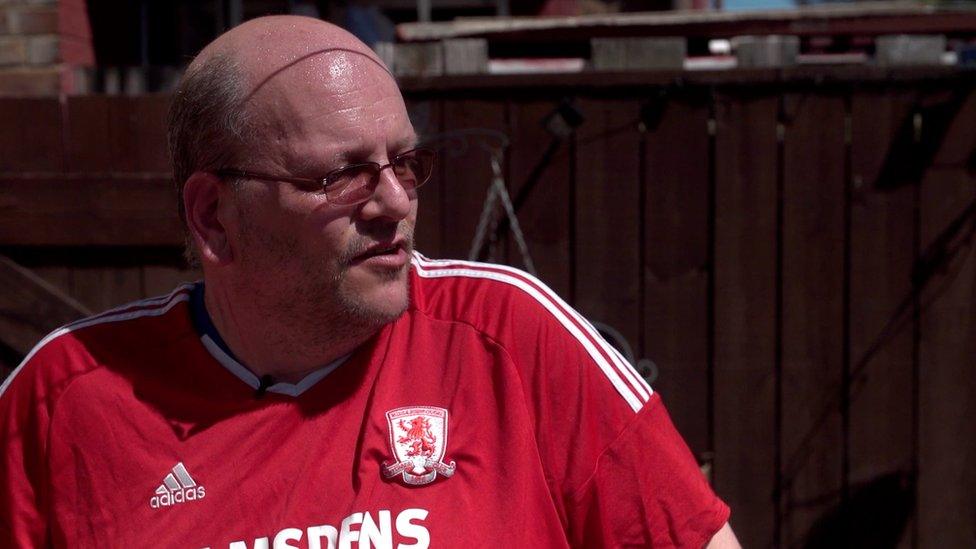
Rob Hill
Two years ago he was given six months to live. Rob's on borrowed time.
'I've made a few bad choices," he told Panorama.
"Smoking - worst choice I could have ever made in my life."
He'll leave behind a partner and eight children - the youngest of whom play with him while he's hooked up to a machine that helps him breathe.
'Seeing my kids cry, that's horrible. It's not nice. Seeing them sitting there crying and listening to my children turn around and say 'my dad is going to die soon and I am not going to have him any more'."
An unequal town
Rob lives in a divided town.
In Stockton-on-Tees, those living in the wealthier areas can expect to live as much as 18 years longer than those in the more deprived parts of the town.
It reflects a national problem.
Nationally, on average, a boy born in one of the most affluent areas of England will outlive one born in one of the poorest parts by 8.4 years.
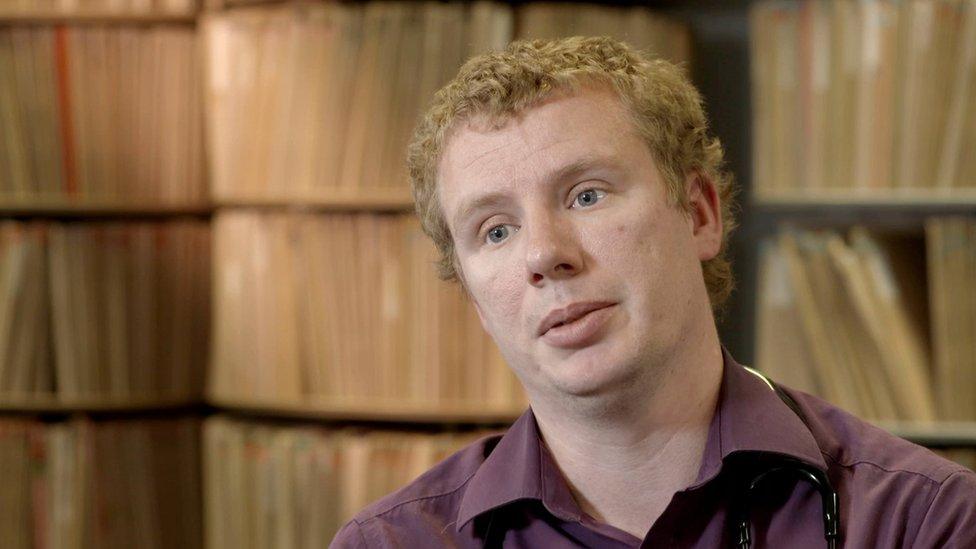
Dr David Hodges is a local GP in Stockton.
Dr David Hodges is a GP in the centre of Stockton, where the life expectancy for a man is 64. That's the same as Ethiopia.
"It's a disgrace. We need to be fixing this. People have the right to get to retirement age healthy. I will accept chronic illnesses, starting in your 60s, I don't accept as a society that we should be expecting people to be unwell in their 40s."
Sorry, your browser cannot display this map
If you cannot view the life expectancy by neighbourhood figures, click to launch the interactive content., external
The reasons for the health inequality gap are complicated.
Prof Clare Bambra, from Newcastle University, led a five-year study into health inequality in Stockton. She says there are many factors, but the main one is income.
"The poor are dying younger because they have less money in order to live a healthy life. They have more pressures on them, they have more insecurity and they have less control over their life."
Nationally, the government says it is committed to tackling health inequality and that it is taking action to help people live longer and healthier lives.
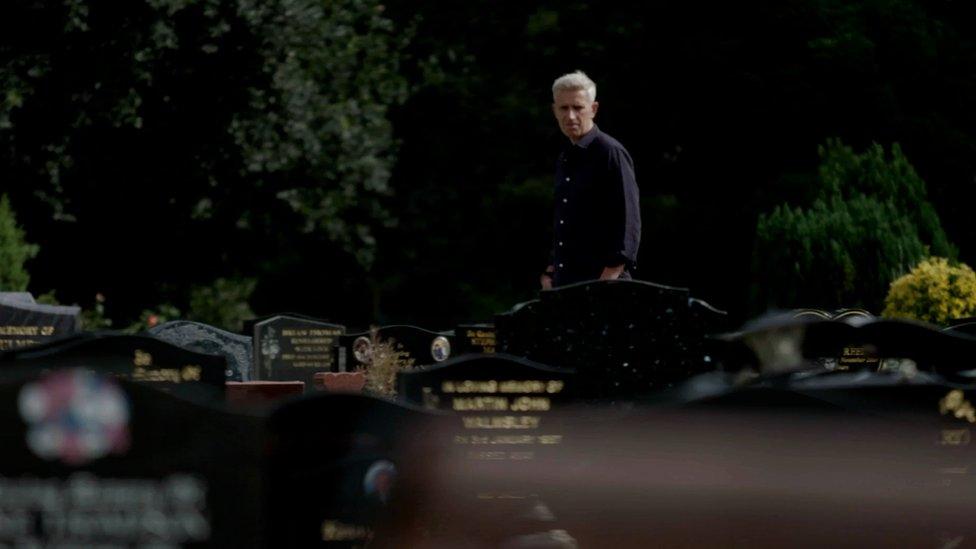
Reporter Richard Bilton walking through a graveyard in Stockton.
In Stockton, health teams, the council and schools are all trying to make a difference.
Bernie Rizzi-Allan is the head of St Bede's Catholic Academy, which serves one of the town's most deprived areas. Results have improved since they introduced health therapies and counselling to help the children.
"People's health should not be defined by their social class," she said. "It can change, and it will change. Our children have got just as much of an innate ability, potential and talent. If we don't recognise that, we're losing this resource. The country is losing so much potential."
But a walk around the cemetery shows the scale of the challenge, with gravestone after gravestone commemorating lives that ended too soon.
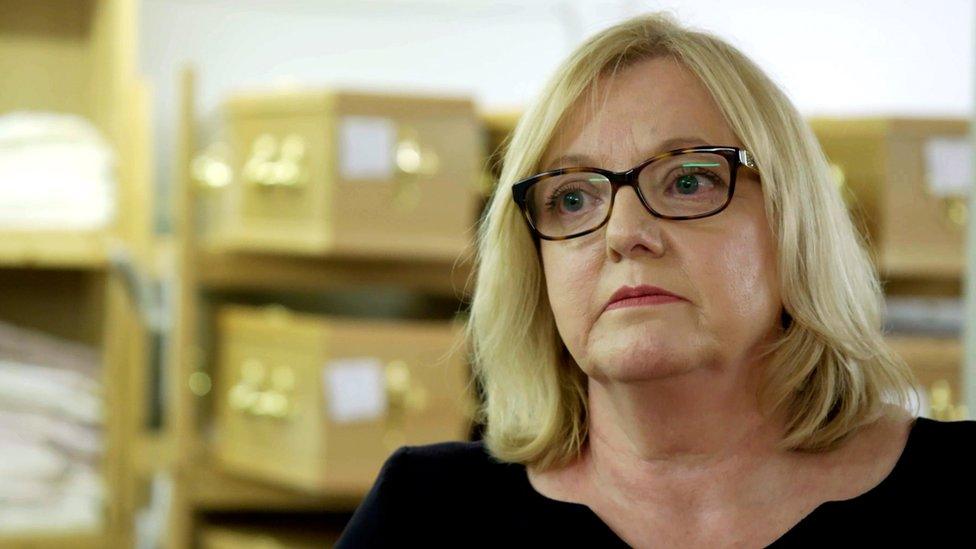
Alison Crake, undertaker in Stockton
Local undertaker Alison Crake said: "You look, and you see somebody's age and you think that that's far too young. It goes beyond the initial grief of losing somebody you love and who is a key part of your family, because it reaches out into all the years that follow."
Back in the Hardwick area of Stockton, Rob is planning his funeral. He wants a short service to help his children deal with his death.
But health inequality is brutal. Harvey is Rob's eight-year-old son.
'When dad comes into the kitchen, I just see him coughing all the time. And then I just end up going away. I don't stay in the kitchen. I don't know, like no-one ever knows when he's going to be gone. No one does, not even the doctor.'
Panorama: Get Rich or Die Young is on BBC One at 20:30 BST on Monday 30 July and available afterwards on iPlayer.
- Published14 May 2018

- Published15 February 2018
